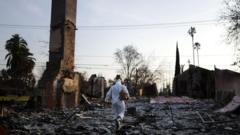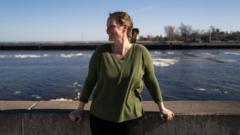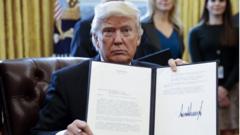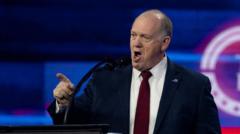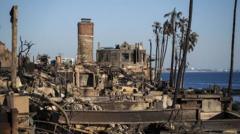Despite long being synonymous with car culture, Los Angeles is seeing a push towards cycling and public transportation as the city prepares for the 2028 Olympics. New bike lanes are emerging, but a segment of the population remains resistant to change, citing concerns over traffic congestion. Advocates believe safer bike paths could encourage broader cycling adoption and transform the city’s transportation landscape.
Can Los Angeles Embrace a Cycling Revolution Before the 2028 Olympics?
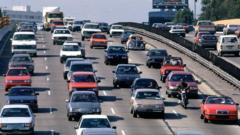
Can Los Angeles Embrace a Cycling Revolution Before the 2028 Olympics?
As Los Angeles gears up for the upcoming Olympic Games and World Cup, the push for bike-friendly infrastructure is intensifying amid resistance from car enthusiasts.
Los Angeles has long been the epicenter of American automobile culture, with its sprawling roads and infamous traffic jams. However, as the city prepares for the highly anticipated 2028 Olympic Games and 2026 World Cup, there is a burgeoning conversation about whether it can pivot toward a cycling-friendly future.
With its picturesque weather and a backdrop ideal for outdoor activities, many believe LA's landscape is primed for cycling. “LA is perfect for runners and cyclists but has been chained to its vehicle-centered culture,” expressed Damian Kevitt, executive director of Streets Are For Everyone (Safe). Despite the city's car-dominated ethos, only around 7% of Angelenos utilize public transportation for work, and a mere 1% bike to their jobs, according to Neighborhood Data for Social Change.
To address the anticipated influx of visitors and to improve local transportation, Los Angeles launched the "Twenty-eight by '28" plan in 2017, aimed at enhancing mass transit options. This initiative has facilitated the rapid rollout of new bike lanes. Kevitt, a cyclist who lost a leg in an accident, champions this movement, hoping that elevated safety measures will encourage more residents to adopt biking.
In 2024, LA voters showed strong support for a ballot measure focusing on the expansion of bike lanes and walkable spaces. However, this development has faced pushback from those entrenched in the city’s car culture. Darin Drabing, a local business leader opposed to bike lane projects, voiced frustration over perceived increases in traffic congestion during his daily commute.
While some cities have successfully integrated bike lanes, Los Angeles has witnessed challenges, such as recent pushback in Glendale that led to the removal of certain lanes. The restrictions on roads like Hollywood Boulevard have led to mixed reactions, as some residents are discouraged by a perceived decrease in road space for cars, while others like cyclist Mimi Holt have rediscovered biking after years of avoidance.
Mayor Karen Bass has voiced her commitment to a “transit first” approach for the Olympics, though progress has been slow. Only five projects from the originally planned 28 are fully completed, with others delayed, raising concerns about the timeline.
To further support this vision, city officials have requested federal funding, hoping for a partnership with the incoming Trump administration to enhance rail infrastructure significantly. Despite skepticism regarding LA's ability to transform into a bike-friendly environment swiftly, Mayor Bass remains optimistic that these changes could lead to a lasting impact beyond the Games, as many locals dream of a future where cycling becomes a more viable commuting option in Los Angeles.

